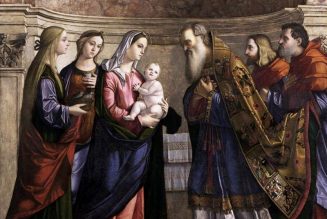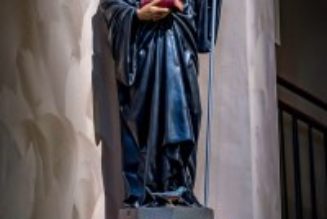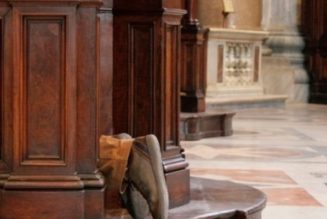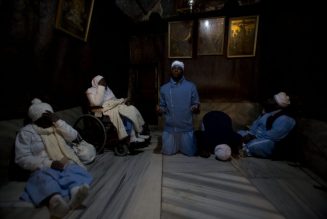ROME – According to World Bank statistics, almost three-quarter of the world’s population today wasn’t even alive in 1974, when a Greek Melkite archbishop from Syria named Hilarion Capucci was arrested in Israel for smuggling Kalashnikovs, pistols, dynamite and detonators for the PLO, presumably for use against Israeli targets.
Capucci died in 2017, and while most people have forgotten his brief fling as a gun runner – or never knew about it in the first place, since they’re far too young – most Israelis certainly haven’t. (August 18, by the way, will be the 46th anniversary of his arrest, which ended in Capucci’s conviction by an Israeli court and then pardon four years later after a personal intervention by St. Paul VI.)
The historical footnotes comes to mind in light of new, heartfelt appeal for peace in the Holy Land issued by three retired Christian church leaders in Jerusalem – Patriarch Michele Sabbah of the Catholic Church, Anglican Bishop Riah Abu El Assal and Lutheran Bishop Munib A. Younan.
“The Holy Land is in flames, in a situation of war, and its holiness must be restored,” the three leaders wrote.
“The land of God asks all churches, governments and persons of good will to act to put an end to this tragedy,” the retired church leaders said.
In principle, the appeal is designed as a non-partisan, pastoral cri de coeur. In an effort to be even-headed, the three prelates insist both that Israel must have security and Palestine must have independence, so that the two states may live side-by-side in “peace, justice, equity and democracy.”
The text also amounts to an exhortation that the peace process not be forgotten amid the disruptions of the coronavirus.
“We too share this universal affliction, and we beg God to have mercy and give healing to all,” they write. But they add that they’re also worried for the “old illness” of the Holy Land in particular, and the “suffering and injustices imposed on its people.”
In reality, however, “non-political” probably is not how most Israelis will take the appeal, and therein lies the rub.
As Sabbah, El Assal and Younan note at the outset of the text, they write as “Arab Christian Palestinians,” and each word in that formula is important. They’re certainly Christians, each a veteran churchman who’s spent his life in pastoral service. They’re also obviously Arabs – Sabbah and El Assal were born in Nazareth, Younan in Jerusalem.
Most significantly in terms of the political optics of the situation, all three are Palestinians who thus can’t help but see the dynamics of the conflict primarily through Palestinian eyes.
For the Catholic bishops of the Middle East, this natural tendency to sympathize with one side over the other – their side, in all honesty – long has been exacerbated by the fact that they represent Christianity in an overwhelmingly Muslim environment, one that’s been progressively radicalized ever since the Palestinian Liberation Organization was founded in 1964, and which now contains entire generations of Muslims trained to regard “the West” and all of its symbols, including its major faith, as an agent of colonialism.
In that context, it’s equally natural that Christian leaders sometimes feel pressure to be even “more Arab,” “more Palestinian,” in order to demonstrate that Christians are not a foreign implant representing Western interests, but natives who share fully the fate of their Muslim neighbors.
Capucci was a sort of extreme version of that tendency, but to varying degrees it’s been shared by most indigenous bishops in the Middle East for a long time. As a result, it’s often difficult for Israeli diplomats and policymakers, to say nothing of the general public, to regard them as neutral arbiters.
Language in the new appeal from Sabbah, El Assal and Younan about the principal cause of the present impasse being “the Israeli military occupation and colonization of Palestine” probably won’t do much to disabuse those notions. Nor will a reference to the “Kairos” movement, referring to a 2009 pan-Christian document calling for resistance to Israeli occupation.
None of this analysis, of course, has anything to do with rights and wrongs, but rather how things are likely to be perceived.
As is abundantly documented, the Middle East presently stands on a knife’s edge. Israel’s still-Prime Minister Benjamin Netanyahu has set a July 1 target date for announcing the annexation of large chunks of the West Bank and the Jordan Valley, the effect of which, according to at least some experts, would be to render any future Palestinian state unviable even if it were to be universally recognized.
This week, senior officials in the Trump administration reportedly will meet to consider whether to offer Netanyahu a green light. If the annexation proceeds, most observers believe any chance of resuming a peace process will be lost and the stage will be set for another round of violent conflict.
At such a crucial hour, the question is which Catholic leaders with traction on both sides of the Israeli-Palestinian divide might be able to step in and help defuse what looks, at the moment, like an almost inevitable explosion.
Undoubtedly, projecting greater balance was part of the logic when Pope Francis named Franciscan Archbishop Pierbattista Pizzaballa as the apostolic administrator of Jerusalem in 2016, taking over from Sabbah. Pizzaballa is Italian, not Arab, and has close ties with Hebrew-speakers and Jewish leaders as well as the Palestinian community. He was previously the Custos, meaning the leader of the Franciscan Custody of the Holy Land, which positioned him to cultivate his own relationship with Israeli authorities apart from the Patriarchate.
If ever there were a moment in which the world needs to hear from the Church’s best minds on the Holy Land, especially figures who stand a reasonable chance of being heard by both Israel’s leadership and its public opinion, this, arguably, is it.
Ironically, the bishops’ conference arguably best positioned to be that “neutral voice” may be the US, which tends to be more sympathetic to Israel than virtually any other. Though American bishops have plenty else on their plate at the moment, perhaps a timely intervention could still make a difference.
Because, let’s face it, whatever else one may think about the declaration from the retired bishops, when they describe the status quo as a “tragedy,” that’s about as non-partisan and down the middle as any assessment could be.
Follow John Allen on Twitter at @JohnLAllenJr.











